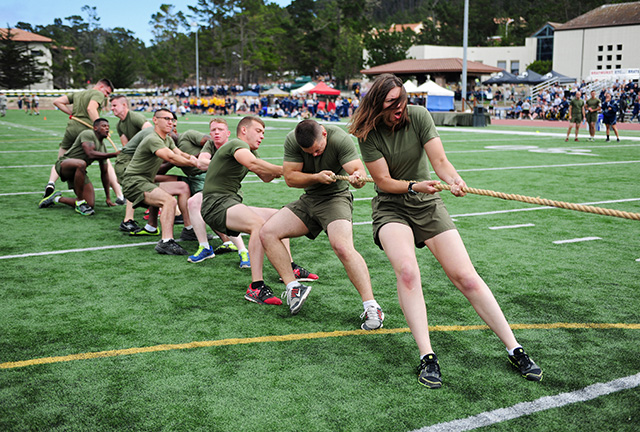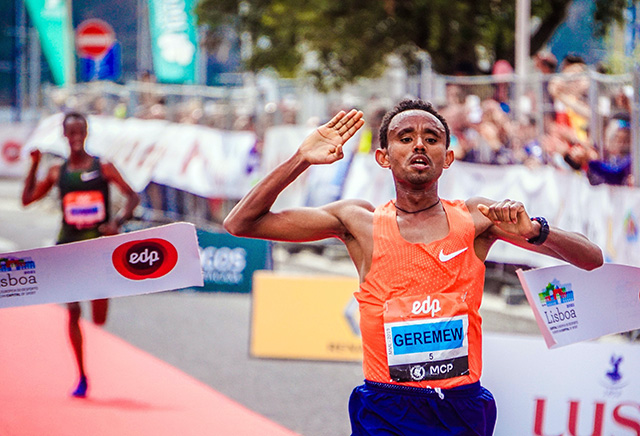We've all heard the buzz about intermittent fasting - it's not just a diet trend, it's a lifestyle change that's taken the health and wellness world by storm. But how does this eating pattern impact those of us with a more athletic disposition?
Deepening our grasp of intermittent fasting requires a holistic view, and that's exactly what we aim to provide in this section. Let's start by looking at what intermittent fasting is and the various protocols popularly implemented today.
 intermittent fasting and athletic performance
intermittent fasting and athletic performanceDefining Intermittent Fasting
Intermittent fasting refers to an eating regimen that cycles between defined periods of eating and fasting. Rather than dictating what foods to eat, it strictly prescribes when to eat them. There are a number of benefits to intermittent fasting, many of which are similar to longer-term fasts like juice cleanses and juice fasts. A mainstay in various cultures for centuries, it's witnessed a resurgence in the health and wellness sphere for its potential physiological benefits.
Essentially, it doesn't specify the type of food, it simply modifies their timing. As an instance, if you love eating avocados, chicken, or oatmeal, intermittent fasting won't eliminate these from your diet - it merely changes when you're permitted to eat them.
Popular Intermittent Fasting Protocols
Several Intermittent fasting protocols have gained popularity, namely:
- 16/8 Method: This involves daily fasts of 16 hours and eating only during an 8-hour period, for example, from 12 noon to 8 PM.
- Eat-Stop-Eat: This requires fasting for 24 hours once or twice a week, such as from dinner one day to dinner the next day.
- 5:2 Diet: This limits calorie intake to around 500–600 on two non-consecutive days of the week. You usually eat normally the other five days without restrictions.
These protocols offer flexibility, enabling individuals to select a plan that best fits their lifestyle and health goals. Their rise in popularity is testament to the search for sustainable, effective approaches to health and fitness. The impact of these protocols on athletic performance is an intriguing exploration, as is next on our journey.
Effects of Intermittent Fasting on the Body
Transitioning from constant feeding to intermittent fasting triggers notable changes in our bodies. These physiological transformations provide insight into the effects intermittent fasting might have on athletic performance. Let's consider the following aspects:
Metabolic Changes During Fasting
Intermittent fasting promotes a metabolic shift in the body, initiating a transition from glucose to fat as the primary energy source. Typically, our bodies convert carbohydrates into glucose for immediate use or store it as glycogen in the liver and muscles. However, during a prolonged fasting window, glycogen stores deplete. Consequently, our bodies start breaking down fats for energy, entering a state known as ketosis. This alternative fuel source becomes especially crucial during prolonged athletic activities. For endurance events, tapping into fat stores could offer a more sustained energy supply, given the ample amount of calories stored as fat.
Impact on Muscle Growth and Recovery
A significant concern for athletes when considering intermittent fasting is the potential impact on muscle growth and recovery. Certain studies indicate the potential of intermittent fasting to enhance human growth hormone (HGH) production. HGH plays an integral role in muscle growth and repair, potentially improving recovery after strenuous workouts.
However, the timing of protein intake is crucial. Since muscle synthesis is most effective immediately after a workout, athletes practicing intermittent fasting could strategize their feedwindows post-exercise.
Yet, additional research is essential to understand these implications fully. This understanding enables us to craft our nutritional plan around our athletic goals, better capitalizing on the effects intermittent fasting might impart on our bodies.
Intermittent Fasting's Role in Athletic Performance
In light of the distinctive eating approach that intermittent fasting advocates, the potential benefits and considerations for athletic performance warrant discussion.
Benefits for Endurance Athletes
Endurance athletes stand to gain significantly from adopting intermittent fasting, given its effect on metabolic changes. During a fasting cycle, the body depletes glucose stores and increases its reliance on fat as a sustainable source of energy. This transition may potentially enhance an athlete's endurance capacity, enabling them to exercise for extended periods without experiencing fatigue.
Certain research studies, such as those conducted by the University of British Columbia, reveal that intermittent fasting may heighten endurance performance by increasing fat oxidation during exercise. However, it is imperative to mention that individual responses can vary, meaning that not all endurance athletes might experience these benefits.
Considerations for Strength-Based Athletes
Intermittent fasting poses certain considerations for strength-based athletes. Primary among these are concerns regarding muscle growth and recovery. Intermittent fasting, as mentioned earlier, enhances the production of human growth hormone—a factor that may positively influence muscle synthesis.
However, it's important to understand that proper timing of protein intake is a key element for muscle growth and recovery in strength-based activities. Given the restricted eating window in intermittent fasting protocols, this aspect might require strategic planning.
Moreover, research remains inconclusive regarding the long-term effects of intermittent fasting on strength development. Some studies, such as those published in the Journal of International Society of Sports Nutrition, suggest intermittent fasting may not adversely affect muscle mass, yet emphasize the need for further investigation.
In both cases—for endurance and strength-based athletes—it's clear that intermittent fasting can play a significant role. Yet, it's also evident that more research is required to establish precise guidelines or protocols for athletes looking to incorporate intermittent fasting into their routine.
Balancing Nutrition and Intermittent Fasting
Effectively leveraging intermittent fasting for athletic performance depends on optimal nutrition and effective hydration. This strategy hinges on two vital aspects: the orchestration of nutrient intake and balancing hydration and electrolyte levels.
Optimal Nutrition Strategies During Fasting Windows
Designing a nutritional plan during the eating windows, a major component of intermittent fasting, requires careful calibration. Athletes need a balanced macronutrient breakdown—protein, carbohydrates, and fats—to fuel workouts and foster recovery.
Firstly, protein plays an essential role, particularly BCAAs (branched-chain amino acids), bolstering muscle recovery, and growth. A good example of a protein-packed meal for athletes might include lean meats paired with legumes and a variety of herbs for added micronutrients.
Next, carbohydrates, acting as the body's energy source, need appropriate intake levels, which depend on the training type and intensity. Consider whole grain foods and fruits, such as brown rice and apples, for healthy carb sources.
Lastly, beneficial fats also deserve attention. For example, avocados, flax seeds, and olive oil are excellent sources of healthy fats that provide long-term energy and keep joints lubricated.
Moreover, the timing of food intake proves impactful in maximizing gains and performance. The best practice involves consuming high-protein, high-carb meals post-training to aid muscle recovery and replenish glycogen stores.
Hydration and Electrolyte Balance
Hydration management, particularly maintaining electrolyte balance, is just as critical as macronutrient balance, if not more so. Proper hydration proves doubly crucial when fasting, as fluid intake often drops during fasted periods.
First, ensure you're consuming an adequate amount of water each day. The specific quantity varies based on factors such as body size, gender, and training intensity, but a generous guideline is to drink at least eight 8-ounce glasses per day, known as the "8x8" rule.
Next, consider beverages that replenish electrolytes. Natural options like coconut water abound in vital electrolytes such as potassium and sodium, which aid in maintaining fluid balance and muscle contractions.
Lastly, outside of fluid consumption, certain foods have high water content and can aid hydration. These include watermelon, cucumbers, and strawberries. Including them in meals, particularly during eating windows, ensures that athletes remain optimally hydrated.
Balancing optimal nutrition with intermittent fasting can enhance the benefits of this dietary strategy for athletes. It not only ensures sufficient intake for optimal performance but also supports the body's unique metabolic response during fasting, potentially improving overall athletic performance.
 Intermittent Fasting can affect athletic performance
Intermittent Fasting can affect athletic performanceAthlete's Perspective and Case Studies
Exploring the athlete's perspective and referencing case studies can provide a realistic depiction of the impact of intermittent fasting on athletic performance.
Success Stories from Various Sports
A growing number of athletes across multiple sports disciplines, including endurance sports like running and cycling, and power sports like weightlifting and body-building, adopt intermittent fasting in their regimen.
- Ultra-runner Zach Bitter set a world record for the 100-mile run in 2019, completing the distance in just over 11 hours. Bitter practiced long periods of fasting and training in a fasted state, transitioning his body to use fat as the primary fuel source.
- Fitness expert and body-builder Martin Berkhan introduced the 16/8 fasting protocol, targeting the alignment of calorie consumption and workouts to promote muscle development and recovery.
These are just two examples out of many, who attribute their success, at least partly, to intermittent fasting. Such athletes push the boundaries of performance and provide valuable insights into nutritional strategies, especially around the time of eating.
Challenges and How to Overcome Them
Adopting intermittent fasting fully involves understanding and navigating a few key challenges. Some common challenges faced by athletes include initial fatigue, water balance and electrolyte management, and properly fueling up for high-intensity workouts.
- Initial Fatigue: An athlete's body usually takes some time to adapt to the newer energy pathway during fasting. An initial feeling of fatigue is natural. Athletes undergo this transition phase by gradually increasing the length of their fasting period and allowing their bodies ample time to adapt.
- Water Balance and Electrolyte Management: During fasting, it's crucial to balance fluid and electrolyte intake. Drinking an adequate amount of water and incorporating food sources rich in electrolytes, like nuts and seeds, during eating windows can help.
- Fuel for High-intensity Workouts: Athletes often struggle to get the required energy for high-intensity workouts during fasting. Timing carbohydrate-rich meals close to workout sessions can help maintain energy levels.
While challenges exist, these case studies show that intermittent fasting, with a proper understanding and approach, can augment athletic performance effectively. Proper nutritional designing, understanding body responses, and adjusting the fasting and eating timelines according to workout schedules can help athletes reap the potential benefits.
Intermittent fasting's impact on athletic performance is undeniable. We've seen how it can shift our metabolism, enhance human growth hormone production, and optimize post-workout protein intake. Athletes like Zach Bitter and Martin Berkhan are living proof that it's not just a fad, but a sustainable lifestyle choice. Of course, it's not without challenges. The initial fatigue and fueling for high-intensity workouts require careful planning and adjustment. Yet, with understanding of our body's responses and proper nutritional planning, we can turn these challenges into advantages. Intermittent fasting is more than a diet—it's a tool that, when used correctly, can significantly enhance athletic performance. So here's to unlocking our full potential, one fast at a time.
Related Pages
- Fasting for Weight Loss - a question answered
- How to Combine Intermittent Fasting and Weight Training for Maximum Results
- Intermittent Fasting and Diabetes Control
- Caloric Restriction Diet for Weight Loss
- Diets and Athletics Performance


 Upcoming Events
Upcoming Events